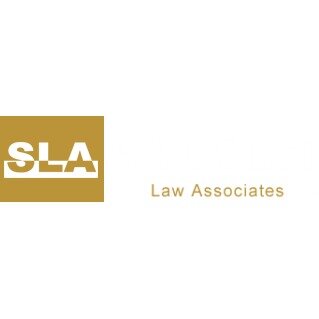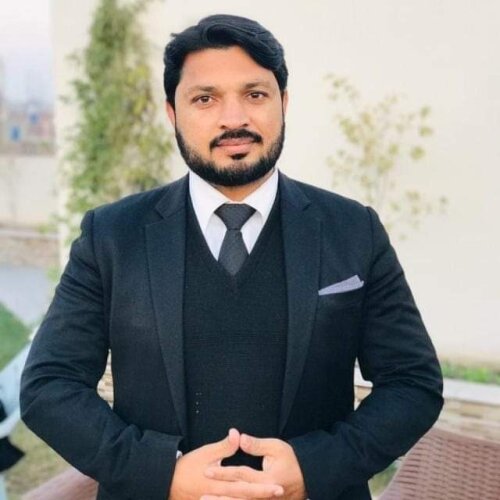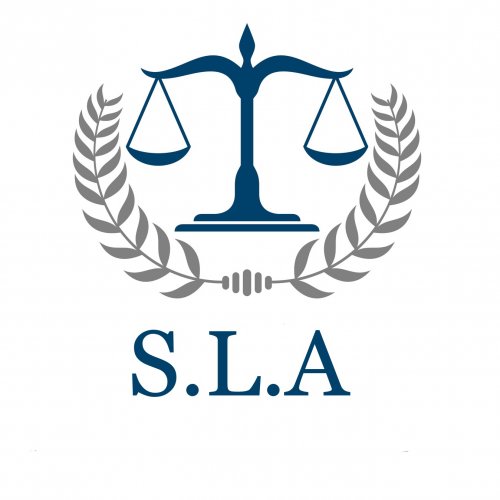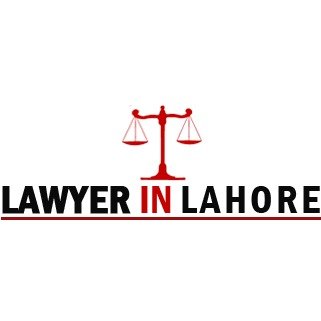Best Child Abuse Lawyers in Lahore
Share your needs with us, get contacted by law firms.
Free. Takes 2 min.
Free Guide to Hiring a Family Lawyer
List of the best lawyers in Lahore, Pakistan
About Child Abuse Law in Lahore, Pakistan:
In Lahore, Pakistan, child abuse laws are governed by the broader national laws on child protection. Any form of child maltreatment, whether it's physical, sexual, emotional abuse, or neglect, is considered illegal. The Pakistan Penal Code (PPC) and the Punjab Child Protection and Welfare Bureau are two key legal instruments in combating child abuse. Lahore has witnessed establishment of Child Protection Courts to ensure quick and child-friendly justice to victims of child abuse.
Why You May Need a Lawyer:
You may require legal advice or representation if you, your child, or someone you know has been subjected to child abuse in Lahore. A lawyer can provide trustworthy guidance in situations where you suspect child abuse, want to file a complaint, need to understand your rights and obligations, or possibly when interacting with authorities like police or child protection services. Also, lawyers can provide valuable aid during court proceedings, ensuring the victim's rights are fully upheld.
Local Laws Overview:
The key laws regarding child abuse in Lahore fall under the jurisdiction of the PPC and other national laws. Under the PPC Sections 328-A, severe penalties are outlined for the cruelty to a child, including imprisonment. In light of growing child abuse cases, the Punjab government has taken steps to establish Child Protection Courts, which simplify legal procedures and make them more children-friendly. These laws aim at not only punishment for offenders but also the rehabilitation and counselling of the victim.
Frequently Asked Questions:
What constitutes child abuse in Lahore?
Child abuse can take many forms including physical, emotional, and sexual abuse, as well as neglect. Physical violence, sexual exploitation, emotional harm, or negligent treatment leading to harm of child’s health, survival, dignity, or development are all forms of abuse.
What should I do if I suspect child abuse?
If you suspect child abuse, you should report your concerns to local police or child protection organizations who can take appropriate action. It's better to seek consultation from a lawyer before taking any action.
Is spanking or hitting considered child abuse?
While disciplining children is a parent's right, any form of physical punishment that hurts the child or is intended to inflict pain can be considered under child abuse. Severity and intent are important contributory factors.
What rights does a victim of child abuse have?
A victim of child abuse has the right to legal protection, to report abuse, to be heard in all proceedings impacting their life, and to receive physical and psychological recovery aid and social reintegration services.
Who can report child abuse?
Anyone who suspects child abuse is obligated morally and legally to report it. This includes family members, neighbors, educators, health care professionals, and in some cases the victim themselves.
Additional Resources:
The Punjab Child Protection and Welfare Bureau, the Society for the Protection of the Rights of the Child, and Children’s Global Network Pakistan are some of the important organizations that can help. Government hotlines and online portals are available to report child abuse cases and seek help.
Next Steps:
If you need legal assistance, you should promptly consult with a lawyer specialized in child abuse cases. Collect and preserve any evidence of the alleged abuse carefully as they may be required for the case. Ensure the safety of the victim, and follow the advice of your lawyer and authorities during the process.
Lawzana helps you find the best lawyers and law firms in Lahore through a curated and pre-screened list of qualified legal professionals. Our platform offers rankings and detailed profiles of attorneys and law firms, allowing you to compare based on practice areas, including Child Abuse, experience, and client feedback.
Each profile includes a description of the firm's areas of practice, client reviews, team members and partners, year of establishment, spoken languages, office locations, contact information, social media presence, and any published articles or resources. Most firms on our platform speak English and are experienced in both local and international legal matters.
Get a quote from top-rated law firms in Lahore, Pakistan — quickly, securely, and without unnecessary hassle.
Disclaimer:
The information provided on this page is for general informational purposes only and does not constitute legal advice. While we strive to ensure the accuracy and relevance of the content, legal information may change over time, and interpretations of the law can vary. You should always consult with a qualified legal professional for advice specific to your situation.
We disclaim all liability for actions taken or not taken based on the content of this page. If you believe any information is incorrect or outdated, please contact us, and we will review and update it where appropriate.

















